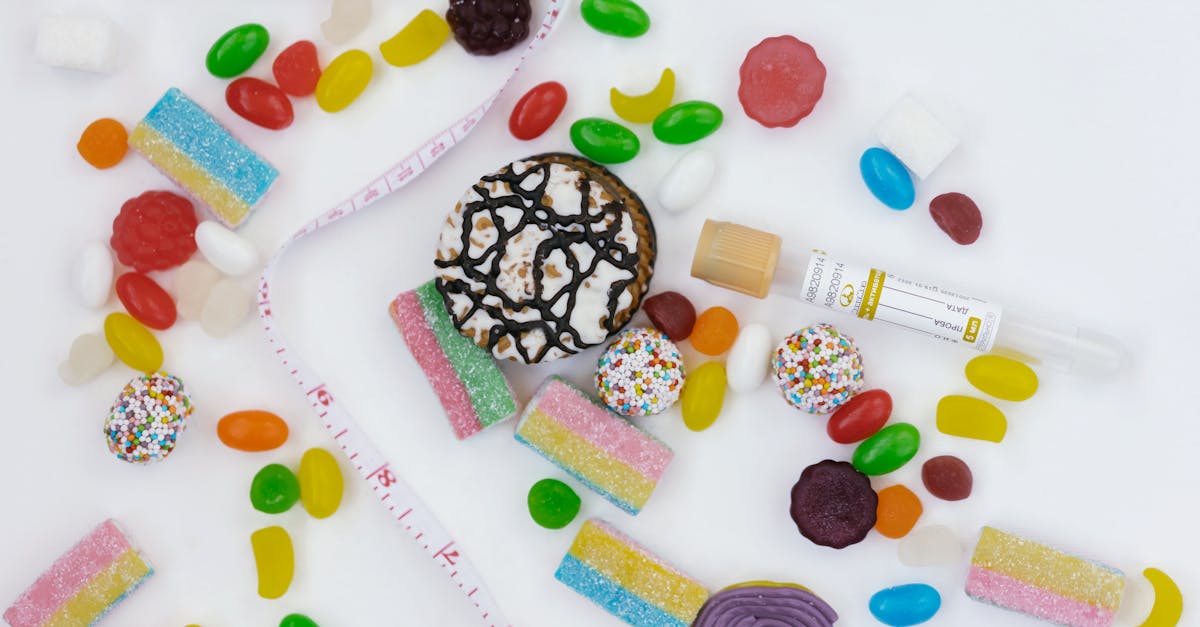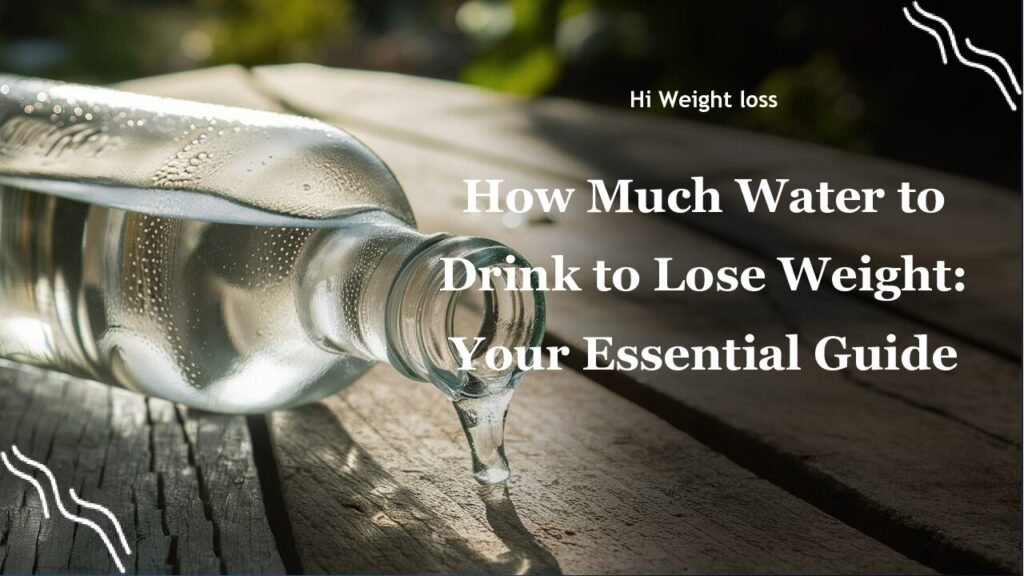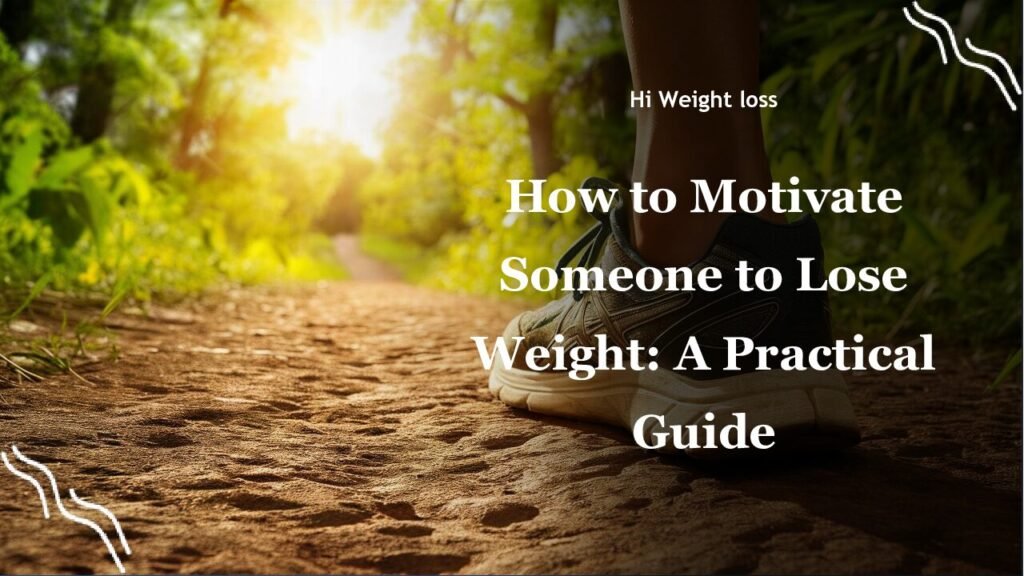Are you struggling to lose weight and feeling lost in the sea of conflicting diet advice? You’re not alone! Many people, like myself, have tried countless diets only to be left wondering if there’s a simpler solution. The truth is, one of the most effective—and often overlooked—tools for weight loss is right at our fingertips: water. This article will guide you through exactly how much water should you drink to lose weight, backed by scientific research and real-world tips.
How Much Water Should I Drink to Lose Weight?
The Science Behind Water and Weight Loss
It might seem too simple, but drinking enough water can significantly aid your weight loss efforts. But how? Well, water is essential for various bodily functions, including metabolism and digestion. I remember a time when I was barely drinking any water, and my energy levels were constantly low. Once I started paying attention to my water intake, I felt a noticeable difference in my overall well-being and my weight loss journey improved.
One key aspect is that water helps boost your metabolism. According to a study, drinking 17 ounces (about 500 mL) of cold water can temporarily increase your metabolism by 24-30%. Imagine that – simply drinking water can help you burn more calories!
Another crucial factor is that drinking water before meals can help you feel fuller, thus reducing your calorie intake. Research shows that dieters who drank 17 ounces of water before each meal lost 44% more weight over 12 weeks compared to those who did not. These are significant numbers, making a compelling case for drinking water before your meals.
Calculating Your Ideal Water Intake
So, how much water is enough? There’s no one-size-fits-all answer, but several guidelines can help you determine your needs. One common method involves using your body weight. A general recommendation is to drink at least 64 ounces (about 2 liters) of water per day. However, this number can be adjusted based on your weight. For instance, if you weigh 150 pounds, you might aim for 75 ounces (about 2.2 liters) daily. This source gives an easy way to gauge your daily water needs.
Your activity level also plays a significant role. If you’re someone who engages in regular physical activity, you’ll need more water to replace what you lose through sweat. It’s recommended to drink about 17-20 ounces of water 2-3 hours before exercise, 8 ounces 20-30 minutes before you start, and 7-10 ounces every 10-20 minutes during exercise. I recall once going for a long hike without drinking enough water; I felt exhausted much faster than usual. Since then, I always carry a water bottle with me, making sure I drink small amounts regularly during physical activities.

Specific Recommendations Based on Age and Gender
Health authorities also offer specific water intake guidelines based on age and gender. The Institute of Medicine provides these recommendations:
Here is a breakdown of daily water intake based on different age and gender:
| Group | Cups | Liters (approx.) |
|---|---|---|
| Females (9-13 years) | 7 | 1.7 |
| Females (14-18 years) | 8 | 2 |
| Females (19+ years) | 9 | 2.2 |
| Males (9-13 years) | 8 | 2 |
| Males (14-18 years) | 11 | 2.6 |
| Males (19+ years) | 13 | 3.1 |
These figures from a trusted health resource provide a solid starting point, but remember to adjust based on your individual circumstances and the weather. For example, on hot days, you’ll need more fluids to stay properly hydrated. My aunt, who lives in a very hot and humid climate, always carries a large water bottle with her and drinks frequently throughout the day. She says it helps her feel much better.
Practical Tips for Staying Hydrated
Now that you know how much water to aim for, let’s talk about how to actually make it happen. First, always have a water bottle within reach. I like to keep one on my desk, in my car, and in my gym bag, so I’m never without it. Second, set reminders on your phone to drink water throughout the day. These small prompts can make a big difference in your consistency.
Also, consider adding some flavor to your water with fruits like lemon, cucumber, or berries. It can make drinking water more enjoyable and keep you hydrated. My friend, who used to dislike plain water, now loves her infused water, which has made it much easier for her to drink more each day.
Pay attention to the signals your body sends. When you feel thirsty, it’s a sign that you are already dehydrated. Make sure you are proactively drinking water throughout the day. Don’t wait for thirst to be your signal.
Boosting Metabolism with Water
We’ve already touched on how water helps your metabolism. Drinking more water can also help your body process nutrients more effectively and aid in waste removal. Think of water as an internal cleanser and facilitator. It helps everything run more smoothly, which is essential for weight loss and overall health. A health article points out the direct impact of hydration on metabolic rate.
Drinking water, especially before meals, can also help you eat less. Many times, our bodies mistake thirst for hunger. So, before reaching for a snack, try drinking a glass of water. You might find that you were thirsty all along, and now you can avoid those extra calories.
Water Before Meals: Your Secret Weapon
As mentioned earlier, drinking water before meals is a powerful tool for weight management. It’s like giving your stomach a head start. I have personally found that if I drink about 16 ounces of water before each meal, I feel fuller and I eat much less. That way, I am much more able to make healthier food choices.
If you do not drink enough water before you eat, you are much more likely to overeat. Therefore, having the discipline to drink enough water before you eat can really help in your weight loss journey. You will be so glad you did!
Conclusion
Incorporating adequate water into your daily routine is a vital step in achieving your weight loss goals. While there’s no magic number, knowing how much water should you drink to lose weight depends on factors like your body weight, activity level, and age. As this article has explained, generally, a good starting point is to drink at least 64 ounces (about 2 liters) of water per day, but remember that these guidelines are just a starting point. Listening to your body and making small, consistent changes is key.
Drinking water before your meals, keeping a water bottle with you, and setting reminders are all practical ways to increase your intake. The story of my friend who started infusing her water with fruit and now loves drinking water is an example of how small changes can make a big impact. Remember the tips here, and incorporate them into your routine. Now go ahead and drink some more water, your body will thank you! If you found this article helpful, please feel free to share it with others. And if you have any tips, please feel free to leave them in the comment section.
FAQ
Can drinking water alone make me lose weight?
While drinking water can support weight loss efforts, it’s not a magic bullet on its own. It works best when combined with a healthy diet and regular exercise. Water aids metabolism and helps control appetite.
Is there a specific time I should drink water for the best results?
Drinking water before meals is particularly effective for reducing calorie intake. Also, staying hydrated throughout the day is crucial. Drinking water before and during exercise is very important to replace fluids lost through sweat.
Can I drink too much water?
Yes, over-hydration (hyponatremia) is possible, though it’s rare. It’s best to drink based on your thirst levels and activity. Generally, follow the recommended guidelines, adjusting for activity, weather, and other factors.
Does cold water boost metabolism more than warm water?
Yes, studies suggest that cold water can temporarily increase metabolism slightly more than warm water because your body expends more energy to warm up the cold water. However, the difference is not substantial enough to dictate how you consume water. Focus on getting the right amount of water regardless of the temperature.
What if I don’t like the taste of plain water?
Try adding natural flavors such as slices of lemon, cucumber, or berries. Unsweetened tea and fruit-infused water are also great options. The important thing is to keep yourself hydrated without consuming a lot of unnecessary calories.



